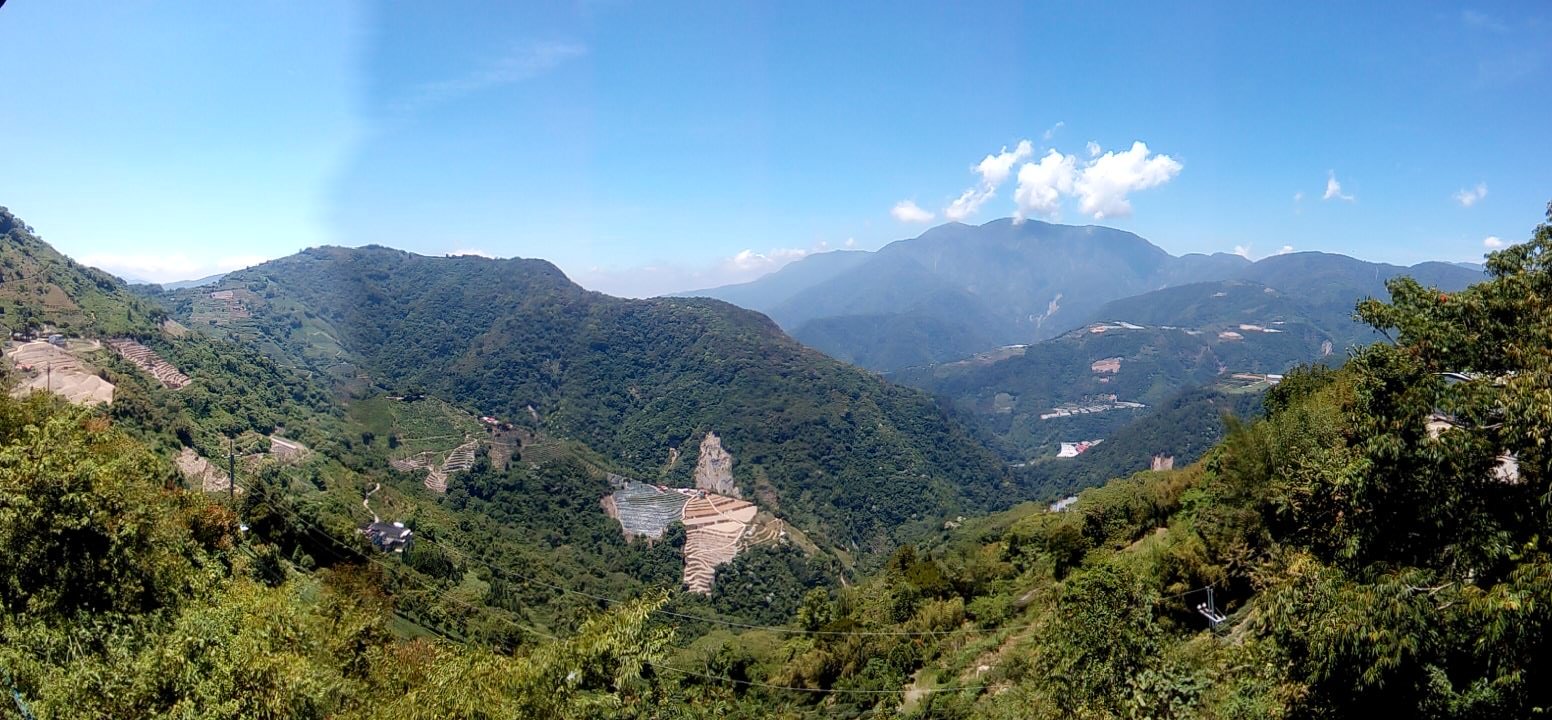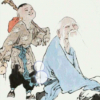-
Content count
999 -
Joined
-
Last visited
-
Days Won
7
Everything posted by Walker
-
Because the coronavirus epidemic that originated in Wuhan continues to spread, I wish to share a simple immunity-promoting technique with members and visitors here. Coincidentally, I learned this incredibly simple and easy method from a student of Andrew Nugent Head while visiting Hubei province, the origin of the current coronavirus epidemic, in 2016. Andrew Nugent Head learned it from Dr. Xie Peiqi (解佩啓), a master of Yin style baguazhang. The Yin bagua practitioners were in close contact with Forbidden City doctors during the late Qing dynasty, and a great many wonderful medical and health promoting techniques were absorbed into their teachings. This is one of them, and it is something that apparently Dr. Xie would make some new baguazhang students do for an hour a day before training anything else. Andrew Nugent Head said he sometimes used to do it for two hours a day. The fellow who taught it to me practiced it while living in a very polluted Chinese city with bitterly cold winters. He and his wife did this method for an hour each morning and neither of them caught a single cold in two years. After learning this method 3.5 years ago I have not gotten a single cold or fallen ill in any other way. I do not think you need to do it an hour every day to get results, and in fact I almost never do it any more. After doing it for 20-40 minutes a day most days of the week for about two to three months, I could feel that my body had reaped the effects of this method, and I was able to feel that I no longer needed do it with regularity. I now only occasionally use it if I feel that I have been affected by pernicious wind-cold qi and need to, in the words of Chinese medicine, "clear the exterior." I would estimate I have done it only three of four times in the last year. Here is how to do it: 1. Stand with approximately feet shoulder width apart in a stance that you find comfortable. Relax your body. Your knees should be straight but relaxed. This is not a horse stance, going low will not help. 2. "As though" there were a ping-pong ball inside of your belly button bouncing constantly up and down at a fast pace and guiding the shaking of the rest of your body at its pace, shake your whole body. I say "as though" because this is not a visualization; the ping-pong ball image is just a suggestion to the body. Do not think of this as "filling the dantian with qi" or anything like that; do not strive to imagine a clear image of a ball. It's just a feeling. You can also think of shaking a big sack of rice to get the grains to settle. The most important thing is relaxing and letting yourself get a chance to know what feels right. 3. If you wish and your environment permits, after you have done this for 20 or more minutes, you can let out a few loud "ha" sounds emanating from your lower abdomen. Three to five is of these sufficient; do not do more than that. 4. Close practice as you please. Best to stand in stillness for some time after you stop moving, until your body feels settled and normal. Then go about your day. Important notes: -If you have time, I recommend doing this 30-40 minutes per day when you begin learning. This will give you enough time to get accustomed to the method and get the desired result. What is the desired effect? After about 20 or 30 or 40 minutes you will clearly feel your whole body has become relatively "open and unobstructed" (通). This is an unmistakable sensation. For me it feels like a shock wave that emanates from my lower abdomen region and then hits the entire surface of my body at once; making the "ha" sound with your belly after 20 minutes can help to trigger such a reaction, but the sound is not necessary. When you shake unto the point of "open and unobstructed" you will feel subtly blissful and get a sense of "that's good, I'm finished now." Important: For the purposes of strengthening the immune system against external pathogenic wind-cold qi (and "breaking" pathogenic qi if you have already succumbed to a small amount of it but are not yet sick with a cold or worse), it is crucial that the wave of "opening" reaches the exterior of the body. This will happen naturally, though, and you must not try to force or guide it. -Your shaking frequency can and will naturally adjust as you practice. That's great, let it happen. It's vigor and up-down range may also naturally change, also great. However: do not sway left and right. Do not wobble or roll your head. Your body and head should basically stay upright, and your posture should be pretty straight. There should be no twisting or spontaneous movements except for small, subtle ones. This is not zifagong and if you trigger zifagong you will get different results. -If parts of your body feel sore during the shaking, try to let them naturally "connect" to the origin of the shaking in your lower abdomen. Feel the connection and observe it. Do not force anything. -Always keep your feet entirely flat on the floor. No jumping, tiptoes, no spontaneous qigong. You need to keep rooted. -Again, try to do 30 to 40 minutes the first many times until you are totally clear about what the "open and unobstructed" feeling entails. Once you understand this feeling, you can just stop when you get that, which might only take you 15 or 20 minutes. -This method is especially good to do if you feel you were exposed to wind-cold and you have the sort of feeling that you get right before you succumb to a flu or cold. If you use this method at this moment, you have a high chance of preventing the onset of a full-blown cold. Unfortunately, if you already have a full-blown cold, I have no idea whether or not this method will help at all (again, I haven't gotten one cold since learning this). -Going overboard past the feeling of "open and unobstructed" resulted in dry stool for me. No need to do this to excess. I think I saw a video where Andrew Nugent Head said that old men in the parks in Beijing in his day would do this until they got "that feeling" and then they'd stop and as, "ah, great, 'open and unobstructed,'" and then start training other things. -Never do this method right before lying down to sleep or rest. Only do it when you will remain upright and reasonably active afterwards. This is because doing this method stirs up a lot of "gunk" in the body, which then needs to naturally mobilize to the places the body will put it to help it leave the body (remember, for example, that lymph fluid only moves if your body moves, and cartilage only gets nourished and cleaned by intercellular fluid if you move). My friend said he once ignored this warning and did this for an hour one morning before deciding to go back to bed. He got back up an hour later feeling awful. -A very influential qigong master in China in the 80s and 90s included this method in his foundation practices required for all beginners. His idea about why it is so useful is very interesting, so I'll share it here. He pointed out that if you put iron filings on a flat surface and then cause that surface to vibrate at a steady rate, the iron filings will spontaneously organize into regulated patterns. He theorized that the various qi, electrical, and magnetic fields of the human body react in a similar way to shaking/vibrating. In other words, doing this practice takes a chaotic, disturbed "pattern" of qi and then "reorganizes" it. This, he postulated, makes it much easier for the body's natural defenses to operate, and has the effect of strengthening the factors that taken together are what Chinese medicine calls "defensive qi" (衛氣/weiqi). Given that I have not succumbed to wind-cold in several years and this method protected my friends in a very polluted and densely populated city in the same way, I think there is a lot of wisdom in this statement, even if it is just a hypothesis. If anybody has any practical questions please let me know and I will try to answer. Best if you try it a few times and then ask questions if any arise. Let us avoid theoretical and speculative discussion if possible, in order to keep this thread simple and accessible for people hoping to improve their immune systems. 祝 身體健康
- 66 replies
-
- 30
-

-

-
- immunity
- coronavirus
-
(and 3 more)
Tagged with:


